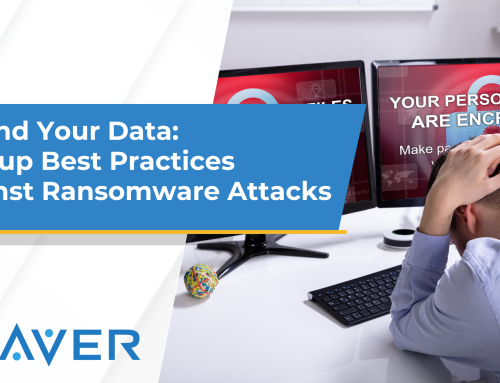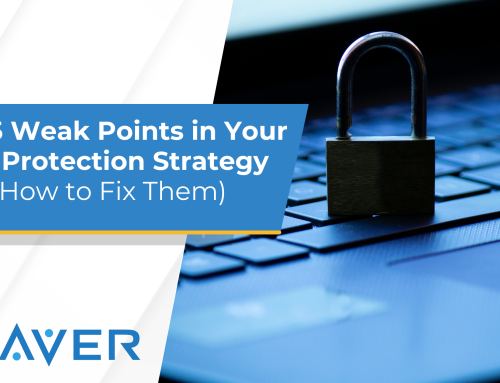- Defining Cloud Security: Protecting Your Assets in the Cloud
- The Five Pillars of Cloud Security: IAM, Data Protection, Network Security, Compliance, and Incident Response
- Challenges in Cloud Security: Shared Responsibility, Lack of Visibility, and Data Loss
- Elements of a Robust Cloud Security Strategy: Risk Assessment, Encryption, Access Controls, Monitoring and Logging, and Disaster Recovery
- Importance of Regular Security Audits: Identifying Vulnerabilities and Ensuring Compliance
- Emerging Technologies in Cloud Security: AI, ML, and Blockchain
- Securing the Cloud for Your Business Success
As companies increasingly shift their operations to the cloud, cloud security has become an essential aspect of IT management. Cloud security refers to the set of technologies, policies, procedures, and controls put in place to protect data, applications, and infrastructure that are hosted in the cloud. In this article, we will discuss the definition of cloud security, the pillars of cloud security, challenges in cloud security, and elements of a robust strategy that businesses can implement to ensure their clients’ security.
Defining Cloud Security: Protecting Your Assets in the Cloud
Cloud security is the practice of protecting data, applications, and infrastructure that are hosted in the cloud. It includes a range of security measures, such as authentication, access control, encryption, network security, and monitoring. The goal of cloud security is to ensure the confidentiality, integrity, and availability of data and resources in the cloud.
The Five Pillars of Cloud Security: IAM, Data Protection, Network Security, Compliance, and Incident Response
There are five pillars of cloud security that businesses should focus on to ensure their clients’ security.
- Identity and Access Management (IAM): IAM refers to the process of managing user identities and access to resources in the cloud. IAM helps to ensure that only authorized users can access sensitive data and applications.
- Data Protection: Data protection involves encrypting data in transit and at rest, as well as implementing access controls and monitoring data usage to prevent data breaches.
- Network Security: Network security includes implementing firewalls, intrusion detection and prevention systems, and other security measures to protect the cloud network from external threats.
- Compliance: Compliance involves ensuring that cloud operations comply with regulatory requirements, industry standards, and best practices. Compliance is essential for organizations that handle sensitive data, such as financial and healthcare data.
- Incident Response: Incident response refers to the process of detecting and responding to security incidents in the cloud. It involves developing a plan for identifying and containing security incidents, as well as a plan for recovering from them.
Challenges in Cloud Security: Shared Responsibility, Lack of Visibility, and Data Loss
Cloud security faces several challenges that businesses should be aware of when developing their clients’ cloud security strategies.
- Shared Responsibility: In the cloud, security is a shared responsibility between the cloud provider and the client. Cloud providers are responsible for securing the underlying infrastructure, while clients are responsible for securing their applications and data.
- Lack of Visibility: The cloud can make it difficult for organizations to have visibility into their data and applications. This can make it challenging to monitor and detect security threats.
- Data Loss: Cloud storage can make data loss more likely due to the potential for hardware failure or human error. Organizations must have backup and recovery plans in place to mitigate the risk of data loss.
Elements of a Robust Cloud Security Strategy: Risk Assessment, Encryption, Access Controls, Monitoring and Logging, and Disaster Recovery
To develop a robust cloud security strategy, businesses should consider implementing the following elements:
- Risk Assessment: Conducting a risk assessment helps to identify potential security threats and vulnerabilities.
- Encryption: Implementing encryption for data in transit and at rest can help protect data from unauthorized access.
- Access Controls: Implementing access controls such as multi-factor authentication, role-based access control, and least privilege can help prevent unauthorized access.
- Monitoring and Logging: Implementing monitoring and logging tools can help detect security incidents and provide valuable information for incident response.
- Disaster Recovery and Business Continuity Planning: Developing a disaster recovery and business continuity plan can help ensure that critical operations can continue in the event of a security incident or outage.
Importance of Regular Security Audits: Identifying Vulnerabilities and Ensuring Compliance
Regular security audits are critical for maintaining the security of cloud environments. Security audits involve conducting an assessment of an organization’s security controls and identifying any vulnerabilities that may exist. By conducting regular security audits, organizations can identify and address security weaknesses before they are exploited by attackers. Moreover, security audits can help organizations ensure they are compliant with industry regulations and best practices. Regular security audits can help organizations achieve greater peace of mind and maintain the trust of their customers.
Emerging Technologies in Cloud Security: AI, ML, and Blockchain
Emerging technologies, such as artificial intelligence (AI) and machine learning (ML), are becoming increasingly important in cloud security. These technologies can help organizations detect and respond to security threats more quickly and accurately. AI and ML can help organizations automate threat detection, analyze large volumes of security data, and make decisions based on patterns and trends in security incidents. Additionally, blockchain technology is emerging as a potential solution for securing cloud transactions and preventing data tampering. By leveraging these emerging technologies, organizations can stay ahead of the curve and ensure that their cloud environments are as secure as possible.
Securing the Cloud for Your Business Success
As businesses continue to shift towards cloud-based operations, the importance of cloud security cannot be understated. By understanding the five pillars of cloud security and implementing a robust cloud security strategy, organizations can ensure the confidentiality, integrity, and availability of their data and resources in the cloud.
As an IT solutions provider, Weaver Technologies is well-equipped to help businesses with their cloud security needs. Our team of experts can help organizations identify potential vulnerabilities and develop a comprehensive cloud security strategy that aligns with their unique business needs. With our guidance and support, businesses can enjoy peace of mind knowing that their cloud environments are secure, and their data is protected.
Don’t leave the security of your cloud environment to chance. Contact Weaver Technologies today to learn how we can help your business secure your assets in the cloud and stay ahead of the curve in cloud security.







